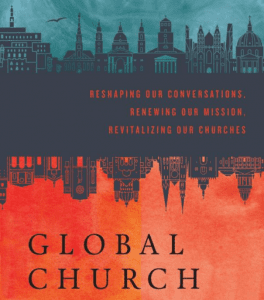A soft liberation theology, with nuances and spectrum at both ends of what liberation theology is, has taken a deep hold among America’s progressive Christians and I see it running right through much of evangelicalism as well. (Often unnoticed by many and often supported vigorously by others.) These are not critiques; these are observations about what I see. This post is about someone else’s take on liberation theology and its potential for the global church. Perhaps the presence of liberation theology in evangelicalism is most noticeable in the intention to change society and the world, not often with very little attention to the church. Among some, churches are cell groups for activism in the public sector.
Here’s why Liberation theology’s core themes ought to matter to American Christians and churches:
Wage inequality
Homelessness
CEO pay
Gender pay gaps
Racial gaps in education
Racial discrimination
Child poverty
Discouraged workers
Wealth inequality
These are clear elements of need in American society. So Liberation theology’s rumor to be preoccupied with the poor in the Majority World countries is but a rumor: America has its share of oppressions and suppressions and areas in need of liberation. All of this is listed, documented, and discussed (ever so) briefly in Graham Hill, Global Church. Theology ought to be applied and at work in resolving each of these elements.
There is not one liberation theology but instead liberation theologies, and so this set of factors above leads to an American kind of liberation theology, but it is fair to say there are some common elements in liberation theology. What are they?
It is a contextual thought and mission
Liberation theology’s praxis cultivates both suspicion and hope. That praxis is contextual, orthodpraxic, transformational, partnering with other disciplines, axial (God’s graciousness and love), and ecclesial.
It is oriented toward solidarity with the oppressed.
It operates on the basis of a liberating Savior.
It takes shape in liberating communities (the idea of base commuinities).
Liberation is holistic in ecology, spiritualty, and liberation.
One of its potentials is liberating women.
In critiquing liberation theology, Hill maps ten conclusions (the critique is found at #9):
1. Liberating Christians have first enjoyed the liberation that only Jesus Christ can offer.
2. Liberating Christians only offer the liberation found in the person and gospel of the Lord Jesus Christ.
3. Liberating Christians examine themselves and how associations with power and privilege shape their lives.
4. Liberating Christians show an active concern for the poor, silenced, marginalized, vulnerable, forgotten and oppressed.
5. Liberating Christians support the poor and marginalized and silenced as they form their own theologies and expressions of faith.
6. Liberating Christians develop communities characterized by specific values and practices.
7 Liberating Christians nurture contemplative-active spirituality that cares for humanity and the earth.
8. Liberating Christians take the Scripture’s focus on mercy and justice and freedom seriously.
9. Liberating Christians examine the claims of liberation theology and form their own conclusions.
Critiques:
First, liberation theology concentrates too much on sociopolitical issues.
Second, liberation theology locates sin and salvation in society.
Third, liberation theology identifies too readily with class struggle and socialism as the means of change, but such identification gives no ultimate reason for it.
Fourth, liberation theology sometimes fails to appreciate that the biblical kingdom of God provides the basis for analysis of society, not any one political analysis.
Fifth, liberation theology often reads Jesus and the Gospels selectively.
He quotes Padilla for a healthier approach:
The alternative to both the “Theology of the Word” and the “Theology of Praxis” is a hermeneutical circulation in which a richer and deeper understanding of Scripture leads to a greater understanding of historical context, and a deeper and richer understanding of the context leads to a greater comprehension of Scripture from within the concrete situation and under the leading of the Holy Spirit.
10. Liberating Christians extend the conversation about the global church.













